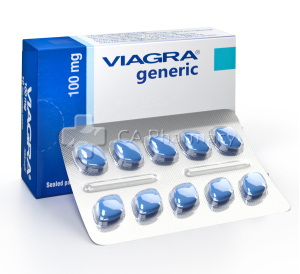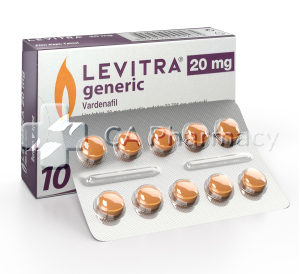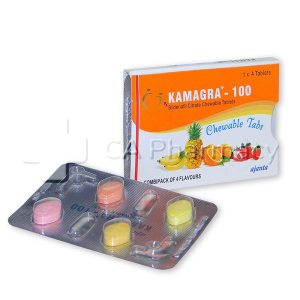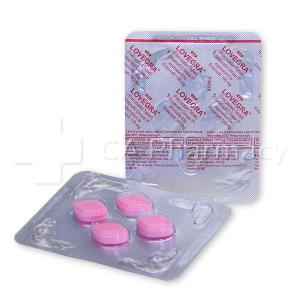What is Accutane?
Accutane, also known by its generic name Isotretinoin, is a retinoid medication that is primarily used to treat severe acne. It works by reducing the production of sebum, the oily substance that leads to clogged pores and the development of acne.
Benefits of Accutane
Accutane has gained a reputation as a miracle treatment for severe acne, and for good reason. Many users have reported significant improvements in their skin after using this medication. Some of the key benefits include:
- 1. Clear skin: Accutane is highly effective in clearing up even the most stubborn acne. It targets the root cause of acne by reducing sebum production and preventing the formation of new acne.
- 2. Long-lasting results: Unlike other acne treatments that provide temporary relief, Accutane offers long-lasting results. Many patients experience clear skin for months or even years after completing their Accutane treatment.
- 3. Improved self-esteem: Acne can take a toll on one's self-confidence.
Accutane is an effective solution for treating severe acne, providing long-lasting and durable results. Its ability to target the root cause of acne by reducing sebum production and preventing the formation of new breakouts makes it one of the best treatments available. Users report significant improvements in their skin, with many enjoying clear skin for months or even years after completing the treatment. Furthermore, Accutane can significantly boost self-esteem, helping individuals regain confidence and improve their overall quality of life.
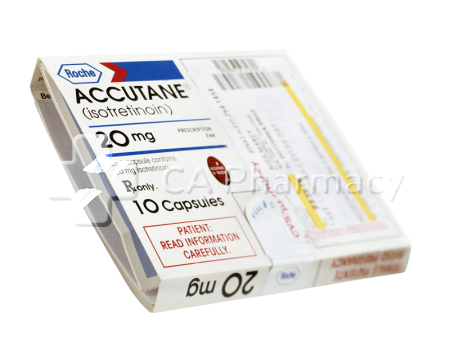
Dosage Accutane (Isotretinoin)
Accutane (Isotretinoin) dosing and administration should be tailored individually based on the patient's weight, severity of acne, and response to treatment. It is critical to follow your healthcare provider’s directions closely for safe and effective use of this medication.
How to Take
- Initial dose typically starts at 0.5 mg per kilogram of body weight daily, taken for 2 to 4 weeks to assess tolerance and response.
- The medication should be swallowed whole with a full glass of water, taken with food to enhance absorption and reduce stomach upset.
- Dosage may be given as a single daily dose or divided into two doses throughout the day, according to convenience and doctor's instructions.
- Maintenance doses can vary between 0.1 mg/kg to 1 mg/kg daily, and in some cases, may go up to 2 mg/kg daily, depending on individual response and side effects.
- A typical full course of therapy lasts 12 to 16 weeks; some patients may require more than one course.
- Regular monthly follow-up visits with your doctor are important for monitoring blood tests and progress.
- If a dose is missed, take it as soon as possible on the same day but do not double dose. Continue with your regular schedule.
- Avoid pregnancy while taking Accutane; women of childbearing age must adhere to strict pregnancy prevention programs.
Following the prescribed dose schedule and medical advice is crucial due to Accutane’s powerful effects and potential side effects. Patients often see initial worsening of acne during the first weeks before improvement occurs. Full benefits typically appear after 1 to 2 months, with continuing improvement after treatment ends. Always communicate any concerns or side effects with your healthcare provider to ensure safe treatment.
Side effects of Accutane Isotretinoin
Accutane, also known as isotretinoin, is a powerful medication used for the treatment of severe acne. While it can be highly effective in reducing acne and improving the skin's appearance, it also comes with some potential side effects. It is important to be aware of these side effects before starting Accutane treatment.
One of the most common side effects of Accutane is dryness. This medication reduces the production of sebum, which can lead to dry skin, lips, and eyes. It is recommended to use moisturizers and lip balms to alleviate these symptoms.
Another common side effect is joint and muscle pain. Accutane can cause inflammation in the joints, resulting in discomfort and stiffness. It is advisable to avoid strenuous physical activities while on the medication and to inform your doctor if you experience any persistent joint pain.
Accutane can also affect the eyes, causing dryness, itchiness, and sensitivity to light. It is important to use lubricating eye drops and to protect your eyes from excessive sunlight or harsh environments.
In rare cases, Accutane may have an impact on the bones, specifically in growing teenagers. It can lead to stunted growth or bone density issues. However, these side effects are usually temporary and resolve once the treatment is complete.
Accutane can also cause changes in mood and mental health. Some individuals may experience feelings of depression, irritability, or mood swings.
How does it work?
- Accutane (Isotretinoin) is a medication used to treat severe acne.
- It belongs to a class of drugs called retinoids, which are derivatives of vitamin A.
- Accutane works by reducing the production of sebum, an oily substance that can clog pores and contribute to acne.
- The medication comes in the form of capsules that are taken orally.
- The dosage and dosing schedule of Accutane varies depending on the individual's condition and response to treatment.
- Accutane should be taken with food to improve absorption and reduce the risk of side effects.
- Some common side effects of Accutane include dryness of the skin, lips, and eyes, as well as joint and muscle pain.
- Accutane can also cause nosebleeds, redness of the skin, and increased sensitivity to sunlight.
- It is important to use effective contraception while taking Accutane, as it can cause severe birth defects if taken during pregnancy.
- Accutane may interact with other medications, so it is important to inform your healthcare provider about all the drugs you are taking.
- Accutane is typically prescribed for a course of several months, with most people seeing improvement in their acne within the first few weeks of treatment.
- Regular blood tests and follow-up appointments are necessary while taking Accutane to monitor for any potential side effects.
Accutane (Isotretinoin) is a highly effective treatment for severe acne, working by reducing the production of sebum, which can clog pores and lead to breakouts. As a retinoid, it is derived from vitamin A and is typically prescribed for a course of several months. While Accutane can offer significant improvements in acne, it may come with side effects such as dryness, joint pain, and increased sensitivity to sunlight. It is crucial to follow the prescribed dosage, take the medication with food, and use effective contraception due to the risk of birth defects. Regular monitoring through blood tests and follow-up appointments is essential to ensure safe and successful treatment.
Who should not take Accutane ?
Here are some groups of people who should avoid taking Accutane Isotretinoin:
- Pregnant women: Accutane Isotretinoin is known to cause severe birth defects if taken during pregnancy. It is recommended that women of childbearing potential use effective contraception methods before starting the treatment and also during the course of the medication.
- Breastfeeding women: It is advised that breastfeeding women should not take Accutane Isotretinoin as it can pass into breast milk and harm the nursing infant.
- Individuals with hypersensitivity: If you have a known allergy or hypersensitivity to isotretinoin or any of the ingredients in the medication, you should not take Accutane Isotretinoin.
- Pre-existing liver disease: People with pre-existing liver disease or elevated liver enzymes should not take Accutane Isotretinoin, as it can further damage the liver and worsen their condition.
- High blood lipid levels: Accutane Isotretinoin can increase blood lipid levels, including cholesterol and triglycerides. Individuals with uncontrolled high blood lipid levels should avoid taking this medication.
Accutane (Isotretinoin) should not be taken by certain individuals due to potential risks. Pregnant and breastfeeding women should avoid the medication, as it can cause severe birth defects and harm infants. Those with a known allergy to isotretinoin or its ingredients, individuals with pre-existing liver disease, and people with uncontrolled high blood lipid levels should also refrain from using Accutane. It is essential to consult with a healthcare provider to determine if Accutane is safe for you, based on your medical history and condition.











